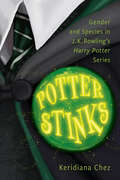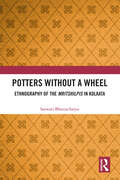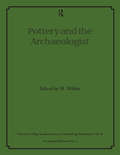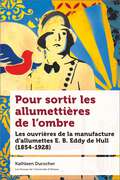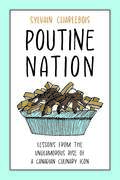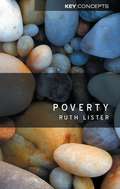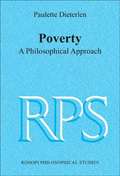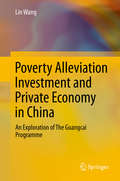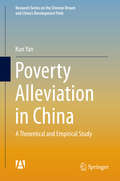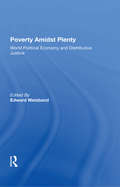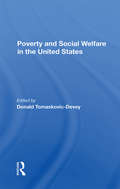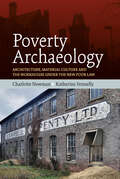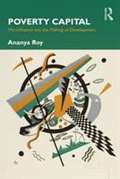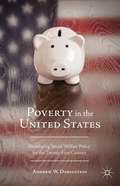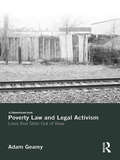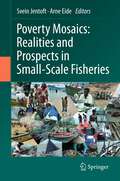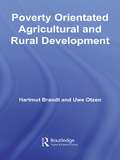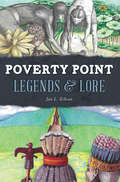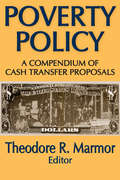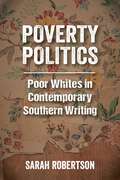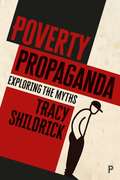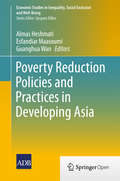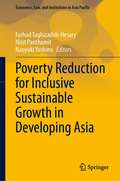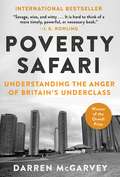- Table View
- List View
Potter Stinks: Gender and Species in J. K. Rowling’s Harry Potter Series
by Keridiana ChezDecades after captivating the globe with the Harry Potter series, J. K. Rowling ignited fierce controversy by promoting anti-trans views through social media and her website. The ensuing debate prompted a re-reckoning of the series’s latent conservatism as devoted fans grappled with its lionized author’s online vitriol against a vulnerable group. In the wake of this controversy, Potter Stinks: Gender and Species in J. K. Rowling’s "Harry Potter" Series critically examines the limitations of the liberalism embedded within the series. At the same time, the book highlights what remains worthy of celebration and rekindles important conversations about the intersection of literature, ideology, and social change. Looking primarily at the original seven books, author Keridiana Chez discusses how gender and species discourses operate in wizarding society, intersecting with questions of class, technology, and labor as well as gender and species fluidity and trans identities. Potter Stinks serves as a vital contribution to Harry Potter scholarship, paving the way for a more nuanced understanding of one of the most influential literary franchises of our time.
Potters without a Wheel: Ethnography of the Mritshilpis in Kolkata
by Saswati BhattacharyaThis book is an ethnographic study of clay idol-makers of Kumartuli in Kolkata, India. Much of the visibility and identity of Kolkata’s creative culture has been dependent upon the clay artists of Kumartuli for the last 100 years or so. This book explores the nature of the carefully constructed identity of these idol-makers as mritshilpis , or clay artists, who, as opposed to ordinary potters, work with their hands instead of a wheel. It looks at how the mritshilpis consciously embrace and expand their market based on this variation and elevated status as artists instead of artisans and studies the embeddedness of this identity within the commodity markets. It also shows that commodity markets, in this case the market of clay idols, are an outcome of trends of urbanisation, popular demand, corporatisation and commodification of culture, all of which have shaped the contours of clay idol-making as not only an occupation but a brand identity. Drawing on extensive fieldwork and in-depth interviews, the book highlights the larger structural relationship between urbanisation, indigenous occupational categories and identity politics. It will be indispensable to scholars and researchers of sociology, social anthropology, political studies, cultural history, urban economy, art history, urbanisation, cultural studies and urban sociology.
Pottery and the Archaeologist (UCL Institute of Archaeology Publications)
by Martin MillettCollection of research papers concerning ceramic and ceramic analysis for archaeologists.
Pour sortir les allumettières de l’ombre: Les ouvrières de la manufacture d’allumettes E. B. Eddy de Hull (1854-1928) (Études régionales)
by Kathleen DurocherQui étaient les « allumettières » de l’usine de pâte et papier E. B. Eddy de Hull ? De jeunes femmes exploitées ou des militantes syndicales engagées ? Entre 1854 et 1928, ces ouvrières chargées de fabriquer 90 % des allumettes du pays ont exercé un métier éreintant et extrêmement dangereux en raison des risques d’incendie et des produits chimiques toxiques qu’elles manipulaient. Les conséquences furent désastreuses pour elles, et il n’est guère surprenant que ces femmes aient déclenché le tout premier conflit syndical féminin au Québec.Dans cette première étude complète sur les allumettières de Hull, l’historienne Kathleen Durocher raconte la fascinante histoire de cette main-d’œuvre anonyme. Pour ce faire, elle met à contribution les recensements canadiens, les archives gouvernementales, privées et paroissiales, ainsi que de nombreux articles de revues scientifiques et de journaux à grand tirage.Durocher dresse ainsi un profil démographique des allumettières et propose des sections dédiées à la vie quotidienne de ces femmes ; leur rôle au sein de la classe ouvrière ; leurs fonctions dans la manufacture ; leurs conditions de travail, les dangers de l’emploi (notamment ceux associés au phosphore blanc) ; et leurs activités syndicales, de 1918 à 1928 – lorsque l’usine a quitté Hull.Tragique et inspirante, l’histoire des allumettières marque l’histoire de la région et du pays depuis plus d’un siècle, mais demeure trop peu connue. Avec ce livre, elle est enfin tirée des oubliettes.
Poutine Nation: Lessons from the Unglamorous Rise of a Canadian Culinary Icon
by Sylvain CharleboisPoutine Nation traces the evolution of poutine from its origins in rural Quebec to its status as a global phenomenon. Though it was once dismissed as lowbrow junk food, poutine has now earned a place in fine dining, fast food chains, and global pop culture. Through a mix of history, cultural analysis, and personal anecdotes, Poutine Nation examines the social and economic forces behind food trends, exploring why some dishes fade into obscurity while others, like poutine, become beloved worldwide. With a keen eye for detail and a touch of humour, leading food scientist Dr. Sylvain Charlebois investigates poutine’s role in Quebec’s cultural identity, its place in Canada’s culinary landscape, and the politics surrounding its success. He also explores the evolution of food trends, the psychology of taste, and the ways in which poutine’s global popularity reflects broader changes in how we eat and connect through food.
Poverty
by Ruth ListerThe book opens with a lucid discussion of current debates around the definition and measurement of poverty in industrialized societies, before embarking on a thought-provoking and multi-faceted exploration of its conceptualization. It draws on thinking in the field of international development and real life accounts to emphasize aspects of poverty such as powerlessness, lack of voice, loss of dignity and respect.
Poverty A Philosophical Approach
by Paulette DieterlenIn Poverty: a philosophical approach, the author studies various philosophical issues concerning poverty in the Program for Education, Health and Food (PROGRESA) that was in effect in Mexico, from 1997 to 2002, and shows how theoretical discussion is necessary to clarify some ideas concerning the application of a social policy. Poverty is one of the main problems concerning economics, political philosophy, and ethics. It is an ethical problem because of its relationship with self-esteem. Since poverty is intimately related to social policies, the philosophy of poverty must consider the distribution criteria used to attend to people in situations of extreme poverty. This would involve attention to their needs, preferences, capabilities and "well-being" rights. The book considers social policies applied to poverty, and their occasional abuse of utilitarian instruments. Many are implemented without considering cultural differences, including varying patterns of conduct in diverse communities. Equality also matters. Since poverty and inequality are not the same, the study of the latter allows us to target groups found in the lowest levels of "the playing field".
Poverty Alleviation Investment and Private Economy in China
by Lin WangThis book explores the mechanisms and significance of China's private economy participating in poverty alleviation. By basing its analysis on theories of development economics and public economics, the book stresses practical significance and abandons unreasonable assumptions. It uses a systematic set of statistical analysis tools and descriptive statistics to provide a multidimensional and highly visual format. Beyond the traditional qualitative comparison of countries, it also introduces quantitative comparison. Considering the increasing concern and curiosity about China's booming economy and rising private sector, the book is highly topical, offering readers theoretical insights into China's poverty alleviation mechanisms and essential information on the role played by the private economy in social and economic development.
Poverty Alleviation in China
by Kun YanThis study systematically investigates the development process, major characteristics and weak links of China's poverty alleviation experience and conducts a comparative analysis of poverty alleviation cases. It also accurately presents the internal logic and core elements of China's poverty alleviation theory and taking the Chinese experience of poverty alleviation refines the "Two Threads One Force" theoretical framework to make a basic judgment of the "China model" for poverty alleviation. It also presents the rationale and plans for responding to new challenges to achieve poverty alleviation goals, which will enhance the welfare of the people and promote social progress and national prosperity.
Poverty Amidst Plenty: World Political Economy And Distributive Justice
by Edward WeisbandEdward Weisband's pioneering text is destined to transform the current teaching of world political economy at both the introductory and the advanced level. Outlining the moral principles and ethical concepts fundamental to grasping the human significance of poverty, he clearly reveals what is often hinted at but rarely stated–that the political dimensions of poverty and distributive justice constitute the organizing framework of the study of world political economy. Against a backdrop of readings, Professor Weisband's insightful, interpretative essays generate an interdisciplinary discussion, a synthesis of theoretical perspectives and value orientations, providing students with a critical comprehension of the complex workings of the world economy. The essays link basic approaches to world politics and international relations, international law and organization, international sociology, development studies, and moral philosophy to give texture to such basic theories as modes of production, dependency, world systems, unequal exchange, the labor theory of value, free-trade liberalism, neomercantilism, Marxism, and neo-Marxism. Alternative value orientations are also explored, including realist and neo-realist, conservative and liberal, egalitarian and cosmopolitan, radical and materialist. Poverty Amidst Plenty combines theory and analysis with historical and normative perspectives to offer students a relevant, prescriptive, and most of all, human picture of the far-reaching system that governs much of our lives.
Poverty And Social Welfare In The United States
by Donald Tomaskovic-deveyThis book was born of the author’s surprise and excitement at the sheer volume of academic work on poverty and social welfare being reported at sociological conferences around the United States in 1985 and 1986. Teachers may wish to use this book in advanced undergraduate and graduate level courses to introduce students to current debates about po
Poverty Archaeology: Architecture, Material Culture and the Workhouse under the New Poor Law
by Katherine Fennelly Charlotte NewmanThe Poor Laws in the United Kingdom left a built and material legacy of over two centuries of legislative provision for the poor and infirm. Workhouses represent the first centralized, state-organized system for welfare, though they maintain a notorious historical reputation. Workhouses were intended to be specialized institutions, with dedicated subdivisions for the management of different categories of inmate. Examining the workhouse provision from an archaeological perspective, the authors demonstrate the heterogeneity of the Poor Law system from a built heritage perspective. This volume forms a social archaeology of the lived experience of poverty and health in the nineteenth century.
Poverty Capital: Microfinance And The Making Of Development
by Ananya RoyWinner of the 2011 Paul Davidoff award! This is a book about poverty but it does not study the poor and the powerless; instead it studies those who manage poverty. It sheds light on how powerful institutions control "capital," or circuits of profit and investment, as well as "truth," or authoritative knowledge about poverty. Such dominant practices are challenged by alternative paradigms of development, and the book details these as well. Using the case of microfinance, the book participates in a set of fierce debates about development - from the role of markets to the secrets of successful pro-poor institutions. Based on many years of research in Washington D. C. , Bangladesh, and the Middle East, Poverty Capitalalso grows out of the author's undergraduate teaching to thousands of students on the subject of global poverty and inequality.
Poverty In The United States
by Andrew W. DobelsteinThis book attributes American poverty to consequences 19th Century social welfare policies within an economy stretching to meet its 21st Century economic potential, arguing that American poverty persists as economic and political structures have moved into the world of fiscal planning but social welfare remains in its Depression-era structure.
Poverty Knowledge in South Africa
by Grace DaviePoverty is South Africa's greatest challenge. But what is "poverty"? And how can it be measured and addressed? In South Africa, human-science knowledge about the cost of living grew out of colonialism, industrialization, apartheid, and civil resistance campaigns, which makes this knowledge far from neutral or apolitical. South Africans have used the Poverty Datum Line (PDL), and other poverty indicators, to petition the state, to chip away at the pillars of white supremacy, and, more recently, to criticize the postapartheid government's failures to deliver on its promises. Rather than advocating one particular policy solution, this book argues that poverty knowledge - including knowledge of the tension between quantitative and qualitative observations - teaches us about the dynamics of historical change, the power of racial thinking in white settler societies, and the role of ordinary people in shaping state policy. Readers will gain new perspectives on today's debates about social welfare, redistribution, and human rights and will ultimately find reasons to rethink conventional approaches to advocacy.
Poverty Law and Legal Activism: Lives that Slide Out of View
by Adam GeareyLinking critical legal thinking to constitutional scholarship and a practical tradition of US lawyering that is orientated around anti-poverty activism, this book offers an original, revisionist account of contemporary jurisprudence, legal theory and legal activism. The book argues that we need to think in terms of a much broader inheritance for critical legal thinking that derives from the social ethics of the progressive era, new left understandings of "creative democracy" and radical theology. To this end, it puts jurisprudence and legal theory in touch with recent scholarship on the American left and, indeed, with attempts to recover the legacies of progressive era thinking, the civil rights struggle and the Great Society. Focusing on the theory and practice of poverty law in the period stretching from the mid-1960s to the present day, the book argues that at the heart of both critical and liberal thinking is an understanding of the lawyer as an ethical actor: inspired by faith or politics to appreciate the potential and limits of law in the struggle against economic inequality.
Poverty Mosaics: Realities and Prospects in Small-Scale Fisheries
by Svein Jentoft Arne EideSmall-scale fisheries are a major source of food and employment around the world. Yet, many small-scale fishers work in conditions that are neither safe nor secure. Millions of them are poor, and often they are socially and politically marginalized. Macro-economic and institutional mechanisms are essential to address these poverty and vulnerability problems; however, interventions at the local community level are also necessary. This requires deep understanding of what poverty means to the fishers, their families and communities; how they cope with it; and the challenges they face to increase resiliency and improve their lives for the better. This book provides a global perspective, situating small-scale fisheries within the broad academic discourse on poverty, fisheries management and development. In-depth case studies from fifteen countries in Latin America, Europe, South and Southeast Asia, and sub-Saharan Africa, demonstrate the enormously complex ecological, economic, social, cultural and political contexts of this sector. Conclusions for policy-making, formulated as a joint statement by the authors, argue that fisheries development, poverty alleviation, and resource management must be integrated within a comprehensive governance approach that also looks beyond fisheries. The scientific editors, Svein Jentoft and Arne Eide, are both with the Norwegian College of Fishery Science, Faculty of Biosciences, Fisheries and Economics, University of Tromsø, Norway.
Poverty Orientated Agricultural and Rural Development (Routledge Studies in Development and Society)
by Hartmut Brandt Uwe OtzenOver the last twenty years the proportion of development cooperation resources earmarked for agricultural development has dwindled to between six and seven per cent of total bi- and multilateral Official Development Assistance. This is despite the fact that eighty per cent of the world's poor live in rural agricultural areas and that the poor are disproportionately affected when political, military and natural events lead to regional or global food shortages. Brandt and Otzen's key book fills a gap in current literature, undertaking a wide-ranging conceptual reorientation of development cooperation, criticizing the current orthodoxy and its bias towards urban areas, and arguing that in order to effectively alleviate poverty across the world, agricultural and rural development measures need to be implemented both by central and subnational governments, aid agencies and the private sector. The authors investigate the world food question, the current pressures it is under and its link to rural poverty, and set out the policies that need to be undertaken to reduce global poverty.
Poverty Point Legends & Lore (American Legends)
by Jon L. GibsonArchaeologists have been investigating the ruins of Poverty Point for decades, piecing together a fascinating picture of a 3,500-year-old hunter-gatherer way of life. But Poverty Point is more than an archaeological treasure-trove. It's also an eerie locus for southeastern native lore. Cold breezes on warm nights stir up spirit foxes and singing locusts. Otherworldly messages find their conduit in the drumming of trees and hooting of owls. Archaeologist and author Jon Gibson unearths the strange narratives that are as much a part of Poverty Point as the artifacts and earthworks themselves.
Poverty Policy: A Compendium of Cash Transfer Proposals
by Theodore R. MarmorCash transfers are but one form of income supplementation, and a fuller presentation of antipoverty proposals would include both transfers in-kind (such as food, housing, and medical care) and human investment programs aimed at increasing the earning capacity of individuals. Much discussion has centered on how to reduce poverty by getting more cash income in the hands of poor people. This collection brings together in one accessible volume the most widely discussed plans for reducing financial poverty in the United States through cash transfers.
Poverty Politics: Poor Whites in Contemporary Southern Writing
by Sarah RobertsonRepresentations of southern poor whites have long shifted between romanticization and demonization. At worst, poor southern whites are aligned with racism, bigotry, and right-wing extremism, and, at best, regarded as the passive victims of wider, socioeconomic policies. In Poverty Politics: Poor Whites in Contemporary Southern Writing, author Sarah Robertson pushes beyond these stereotypes and explores the impact of neoliberalism and welfare reform on depictions of poverty. Robertson examines representations of southern poor whites across various types of literature, including travel writing, photo-narratives, life-writing, and eco-literature, and reveals a common interest in communitarianism that crosses the boundaries of the US South and regionalism, moving past ideas about the culture of poverty to examine the economics of poverty. Included are critical examinations of the writings of southern writers such as Dorothy Allison, Rick Bragg, Barbara Kingsolver, Tim McLaurin, Toni Morrison, and Ann Pancake. Poverty Politics includes critical engagement with identity politics as well as reflections on issues including Hurricane Katrina, the 2008 financial crisis, and mountaintop removal. Robertson interrogates the presumed opposition between the Global North and the Global South and engages with microregions through case studies on Appalachian photo-narratives and eco-literature. Importantly, she focuses not merely on representations of southern poor whites, but also on writing that calls for alternative ways of reconceptualizing not just the poor, but societal measures of time, value, and worth.
Poverty Propaganda: Exploring the Myths
by Tracy ShildrickDoes ‘real’ poverty still exist in Britain? How do people differentiate between the supposed ‘deserving’ and ‘undeserving’ poor? Is there a culture of worklessness passed down from generation to generation? Bringing together historical and contemporary material, Poverty Propaganda: Exploring the myths sheds new light on how poverty is understood in contemporary Britain. The book debunks many popular myths and misconceptions about poverty and its prevalence, causes and consequences. In particular, it highlights the role of ‘poverty propaganda’ in sustaining class divides in perpetuating poverty and disadvantage in contemporary Britain.
Poverty Reduction Policies and Practices in Developing Asia
by Almas Heshmati Esfandiar Maasoumi Guanghua WanThis book looks at the major policy challenges facing developing Asia and how the region sustains rapid economic growth to reduce multidimensional poverty through socially inclusive and environmentally sustainable measures. Asia is facing many challenges arising from population growth, rapid urbanization, provision of services, climate change and the need to redress declining growth after the global financial crisis. This book examines poverty and related issues and aims to advance the development of new tools and measurement of multidimensional poverty and poverty reduction policy analysis. The book covers a wide range of issues, including determinants and causes of poverty and its changes; consequences and impacts of poverty on human capital formation, growth and consumption; assessment of poverty strategies and policies; the role of government, NGOs and other institutions in poverty reduction; rural-urban migration and poverty; vulnerability to poverty; breakdown of poverty into chronic and transitory components; and a comparative study on poverty issues in Asia and other regions. The book will appeal to all those interested in economic development, resources, policies and economic welfare and growth.
Poverty Reduction for Inclusive Sustainable Growth in Developing Asia (Economics, Law, and Institutions in Asia Pacific)
by Naoyuki Yoshino Farhad Taghizadeh-Hesary Nisit PanthamitThis book provides practical policy recommendations that are useful for developing Asia and for accelerating poverty reduction plans in the rest of the world. Poverty reduction in all its forms remains one of the greatest challenges facing humanity. In developing Asia, rapid growth in countries and sub-regions such as China, India, and Southeast Asia has lifted millions out of poverty, but progress has been uneven. On the other hand, the current coronavirus (COVID-19) pandemic and the global economic recession that it has caused are pushing millions of people back into poverty. Poverty reduction, inclusive growth, and sustainable development are inseparable, and poverty reduction is the premise for sustainable development. The Sustainable Development Goals (SDGs) are a bold commitment to finish what we started and end poverty in all forms and dimensions by 2030. However, because of the current global recession, the world is not on track to end poverty by 2030. Given the aforementioned situation, if we plan to achieve the no-poverty target in line with the SDGs, governments need to reconsider their policies and economies need to allocate their resources for this aim. Owing to the importance of the topic, this book provides several thematic and empirical studies on the roles of small and medium-sized enterprises, local businesses and trusts, international remittances and microfinance, energy security and energy efficiency in poverty reduction, and inclusive growth.
Poverty Safari: Understanding the Anger of Britain's Underclass
by Darren McGarvey&“Savage, wise, and witty . . . It is hard to think of a more timely, powerful, or necessary book.&”--J. K. RowlingInternational Bestseller! For readers of Hillbilly Elegy and Evicted, the Orwell Prize–winner that helps us all understand Brexit, Donald Trump, and the connection between poverty and the rise of tribalism in the United Kingdom, in the US, and around the world. Darren McGarvey has experienced poverty and its devastations firsthand. He grew up in a community where violence was a form of currency and has lived through addiction, abuse, and homelessness. He knows why people from deprived communities feel angry and unheard. And he wants to explain . . .So he invites you to come along on a safari of sorts. But not the kind where the wildlife is surveyed from a safe distance. His vivid, visceral, and cogently argued book—part memoir and part polemic—takes us inside the experience of extreme poverty and its stresses to show how the pressures really feel and how hard their legacy is to overcome.Arguing that both the political left and right misunderstand poverty as it is actually lived, McGarvey sets forth what everybody—including himself—could do to change things. Razor-sharp, fearless, and brutally honest, Poverty Safari offers unforgettable insight into conditions in modern Britain, including what led to Brexit—and, beyond that, into issues of inequality, tribalism, cultural anxiety, identity politics, the poverty industry, and the resentment, anger, and feelings of exclusion and being left behind that have fueled right-wing populism and the rise of ethno-nationalism.
